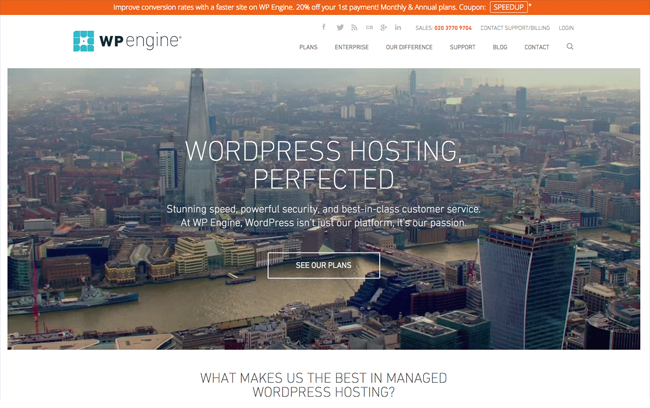One week ago David Vogelpohl from WP Engine kindly took the time to speak to me via a conference call. The discussion was positive and informative.
One of the reasons that I wanted to chat to someone from WP Engine was because I had many concerns about the company in the past. I touched about these issues recently in my article “Why I Haven’t Previously Promoted WP Engine“.
The discussion was not a formal interview. It was pretty casual. David came across as a nice guy who was very passionate about the company he worked with. He was forthcoming in acknowledging the problems the company had in its initial years and the steps they have taken to make things better.
I spent a few days last week reorganising my office so I was surrounded by boxes for days after the call and was not able to publish a recap of the conversation at the time; so I apologise in the delay in posting this recap of the discussion.
A Chat with David Vogelpohl
I was quick to raise the key issues that had concerned me about WP Engine.
The first issue was the deletion of post revisions that had occurred regularly a few years ago. David acknowledged my concerns about post revisions being modified without the approval of customers and said that this may have been a policy at one point for those with unlimited post revisions activated, but it has not been policy for some time.
By default, post revisions are disabled automatically on the WP Engine platform, however you can contact the WP Engine support team and enable revisions at any time. They recommend no more than three post revisions but do allow more to be activated in certain situations.
It is vital that you contact support to handle this as if you modify the post revision configuration yourself in wp-config.php the WP Engine platform will override the setting. Other settings configured in the wp-config.php file are also overwritten such as database settings, memcache, wp-cron, and multisite.
From a personal point of view, I do not like hosting companies overriding settings defined in the wp-config.php file, though I do realise that if you use a managed WordPress hosting company certain things need to be managed on a server level to ensure the platform runs efficiently.

The second issue I raised was the story of keyword stuffing reported by Matthew Woodward. This was particularly alarming to me as it looked like they were interfering with customers’ websites in order to promote their own service.
David advised that when WP Engine first launched they gave free hosting accounts to key marketers and bloggers (a common promotional technique used in the hosting industry when companies are first launched). One of the requirements for such a free account was to include a credit link at the bottom.
It appears that the affiliate team had incorrectly inserted the link into Matthew’s website. I would have been furious in his position too, but it does seem like this was a human error rather than company policy (i.e. someone from the marketing team purposely or accidentally inserted the link). They quickly changed their marketing strategy and stopped using outdated promotional techniques such as credit links in the footer area.
The Positive Side of WP Engine
During our conversation David had acknowledged many times that things were not handled well in the past.
I have been reviewing products and services for years and one of the most common problems I see are companies launching their products too early. They rush out their product without testing it and then have to deal with an avalanche of complaints about errors. Likewise, many service based companies such as WP Engine get overwhelmed by the sheer volume of work required to keep customers happy. When that happens, something has to give. Either customer support suffers or product development slows down. It can be a year before everyone in the company finds their feet and they know how to manage everything efficiently.
I am not saying this to excuse WP Engine’s past actions, though I see new companies making silly mistakes time and time again. It looks like WP Engine have learned from those initial teething problems as they have a killer marketing team and their customer support ratings has vastly improved.
Managed WordPress services tend to me marketed towards non-technical users, however WP Engine can offer WCPLI access for advanced users.
David also spoke about the many new features they have that all customers will find beneficial. This includes staging websites, automatic backups to an external location, and easy transferring of websites. He also noted that they work directly with WordPress theme and plugin developers to ensure their products work nice with WP Engine. For example, they work closely with WP Rocket to ensure that the plugin works correctly with their platform. They also have procedures in place to stop plugins being activated if it will cause a conflict or if there is a security risk.
WP Engine is clearly a different company than they were when I first formed an opinion of them three years ago. I will do a thorough review of their service soon to see firsthand what has changed and what benefits there are to hosting with them.
Many thanks to David Vogelpohl and WP Engine for taking the time to speak to me directly about the concerns I had about their service.
Thanks for reading.
Kevin

